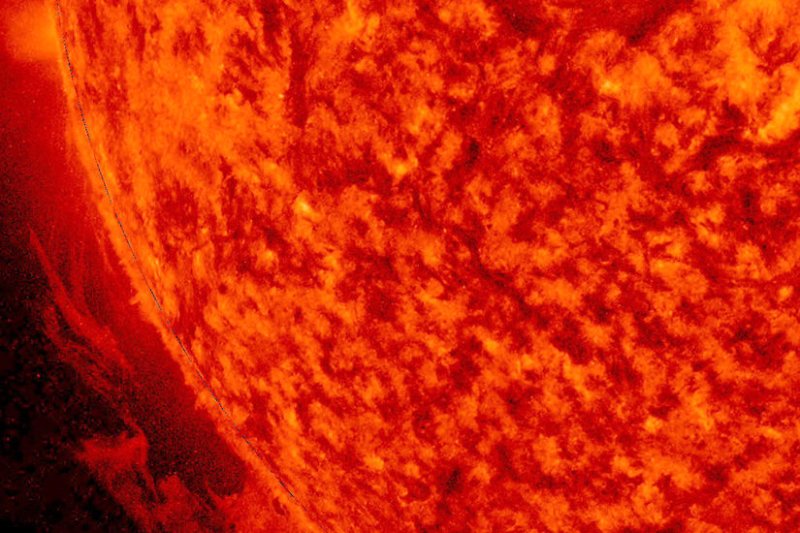Astronomers have discovered a gas giant nearly as hot as the sun. Photo by NASA/UPI |
License Photo
June 5 (UPI) -- Astronomers have discovered a gas giant with an unusually intimate orbit around its host star. The exoplanet is nearly three times the size of Jupiter and featured daytime temperatures hotter than most stars.
KELT-9b is the hottest giant planet discovered to date. According to the latest analysis, by midday, the exoplanet's temperature reaches more than 7,800 degrees Fahrenheit -- just 2,000 degrees cooler than the sun.
The planet's host star, KELT-9, is the largest, hottest and brightest star found hosting a giant planet. The star's intense energy and KELT-9b's close orbital proximity account for its record-breaking temperatures.
Interestingly, KELT-9b's orbit traces the poles of its host star, not the star's equator.
"It is unclear how KELT-9b obtained its peculiar orbit," Justin R. Crepp, an assistant professor of physics at the University of Notre Dame, said in a news release. "In addition to being ridiculously close, the planet orbits about the poles of its parent star rather than its equator. One can only imagine how it got there."
Researchers believe KELT-9b's existence is relatively precarious. The exoplanet is blasted with intense ultraviolet rays on a daily basis.
Some scientists believe KELT-9 could one day consume the giant planet, or at least burn away it's gaseous atmosphere, leaving behind a small, barren orb.
"If gas giant planets like KELT-9b possess solid rocky cores as some theories suggest, the planet may be boiled down to a barren rock, like Mercury," said Keivan Stassun, professor of physics and astronomy at Vanderbilt University.
Researchers published their study of KELT-9b in the journal Nature.















